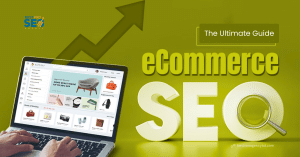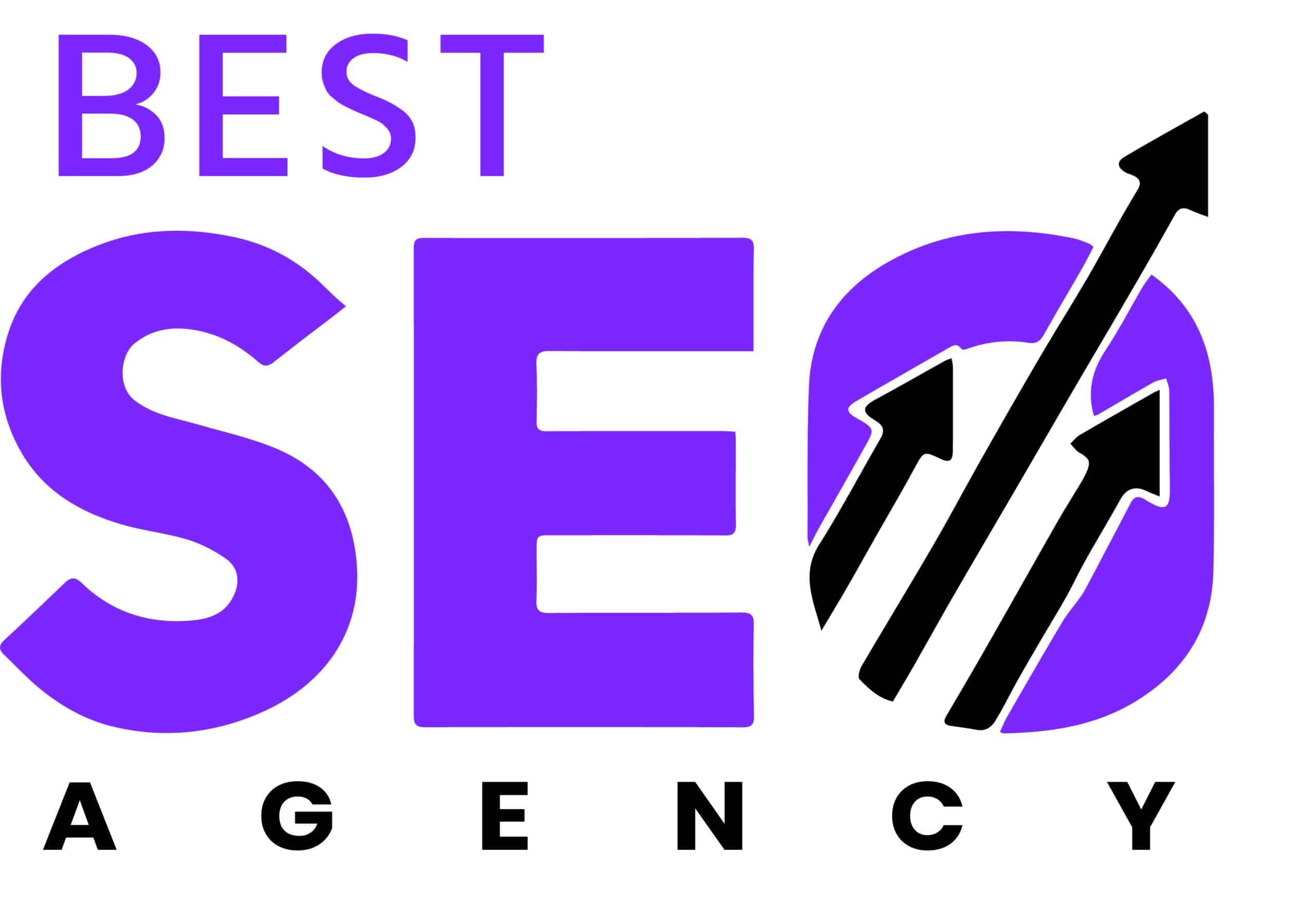
In today’s competitive digital marketplace, merely having an ecommerce store is not enough. To rank higher on search engines, attract qualified traffic, and convert visitors into customers, your product pages must be strategically optimized using Ecommerce SEO techniques.
Ecommerce SEO focuses on optimizing your site structure, technical SEO, content, and user experience so that search engines like Google can easily understand and rank your products. Businesses that implement proper SEO strategies enjoy higher keyword ranking, increased organic traffic, and ultimately, higher sales.
Whether you run a small online shop or a large-scale ecommerce platform, understanding how to optimize product pages is essential to outperform competitors and maximize ROI in 2025..
What is Ecommerce SEO?
Ecommerce SEO is the process of optimizing your online store to rank higher in search engines. Unlike general SEO, it focuses specifically on product and category pages, aiming to attract users with a buying intent.
Key components include:
- Keyword optimization for product titles, meta descriptions, and headings
- Content quality for product descriptions, blogs, and guides
- Technical SEO for site speed, mobile responsiveness, and secure browsing (HTTPS)
- Customer reviews and ratings to build credibility
- Structured data (schema markup) to improve search results appearance
Why Ecommerce SEO is Important
Optimizing your ecommerce website goes far beyond just uploading products. In 2025, Ecommerce SEO is essential to attract qualified traffic, improve user experience, and increase revenue. Let’s break down why it matters for your business:
1. Increase Organic Traffic
Most online shoppers begin their buying journey on search engines like Google. If your product pages are not optimized, you risk losing these potential customers to competitors. Proper Ecommerce SEO ensures your products appear in relevant searches, increasing maps ranking and visibility on Google Business Profile (GBP) listings for local searches. This drives a steady flow of targeted, high-intent visitors to your site.
2. Boost Conversions
Optimized product pages aren’t just about rankings—they also enhance user experience. By ensuring your pages load quickly, have clear product descriptions, engaging images, customer reviews, and an easy-to-navigate layout, you make it simple for customers to make a purchase.
Integrating local SEO tools and following a local SEO checklist can also improve visibility for customers searching in your area, increasing the chances of local conversions.
3. Lower Marketing Costs
Unlike paid ads, which require ongoing investment, Ecommerce SEO builds sustainable traffic over time. Optimized pages continue to attract visitors organically, reducing dependency on Google Ads or other paid marketing campaigns.
Using a combination of SEO audit templates and SEO tools ensures that your efforts target the right keywords, resolve technical issues, and maintain performance, maximizing ROI without recurring ad spend.
4. Build Brand Authority
High-ranking product pages signal trust and authority to both search engines and potential customers. When your site consistently appears in top positions on Google, your brand gains credibility.
Leveraging Google Maps SEO and maintaining a strong Google Business Profile further reinforces your presence locally, making your store the go-to option for nearby customers.
5. Stay Ahead of Competitors
Many businesses neglect technical SEO aspects like site speed, mobile responsiveness, structured data, or local optimization. By implementing these best practices, you gain a competitive edge. Optimizing your site using local SEO tools, following a local SEO checklist, and tracking maps ranking ensures you outrank competitors and capture market share.
Who Needs Ecommerce SEO?
- Small & Local Businesses – Compete against bigger brands without huge ad budgets.
- Niche Product Stores – Capture highly targeted buyers looking for specific products.
- Large Ecommerce Platforms – With thousands of pages, SEO ensures every product gets visibility.
- Stores Targeting Local Customers – Optimizing for Google Maps and local search increases in-store and online sales.
How to Optimize Product Pages for Higher Sales
1. Keyword Optimization
- Include buyer-intent keywords in product titles, meta descriptions, and headings
- Use location-specific keywords if targeting local customers
- Avoid copying manufacturer descriptions—write unique and benefit-driven content
2. Technical SEO for Ecommerce
- Ensure fast page speed using tools like PageSpeed Insights, GTmetrix, and Lighthouse
- Make your site mobile-friendly
- Use structured data (schema markup) for prices, ratings, and stock info
- Fix crawl errors, broken links, and redirect chains
3. High-Quality Visual Content
- Multiple product images with zoom and lifestyle shots
- Product videos or demos improve engagement and reduce returns
- Compress images to optimize speed
4. Reviews & Social Proof
- Encourage genuine reviews and ratings
- Display reviews on product pages and Google Business Profile
- Respond professionally to negative reviews to maintain trust
5. Internal Linking & Navigation
- Link related products and categories to improve user experience
- Use breadcrumbs for both SEO and navigation
- Optimize site structure to make products easily discoverable
6. Local SEO for Ecommerce
- Optimize product pages for local searches like “near me” queries
- Claim and update your Google Business Profile
- Build local citations on directories and review platforms
Tools for Ecommerce SEO Optimization
- Google Analytics: Track traffic, conversions, and user behavior
- Google Search Console: Monitor indexing, search queries, and SEO performance
- Screaming Frog / Ahrefs / SEMrush: Perform technical SEO audit and competitor analysis
- PageSpeed Insights: Measure speed and Core Web Vitals
- Ubersuggest / Free SEO Tools: Keyword research and content audit
Tracking and Improving Ecommerce SEO Performance
- Track keyword ranking for all top products
- Monitor CTR, bounce rates, and conversion rates
- Conduct regular website audits using an SEO audit checklist
- Test product titles, images, and CTAs for performance improvements
- Update content regularly based on user intent and market trends
Advanced Ecommerce SEO Strategies
- Competitor Analysis – Use SEO tools like Ahrefs, SEMrush, and Moz to track competitor keywords and backlinks
- Content Marketing – Blog posts, FAQs, buying guides, and comparison pages drive informational traffic
- Ongoing SEO Audits – Regular audits uncover technical and content issues, ensuring long-term growth
- Monthly SEO Services – Hiring a professional SEO agency ensures continuous optimization and higher ROI
Common Ecommerce SEO Mistakes to Avoid
- Duplicate Manufacturer Descriptions: Using the same product descriptions provided by manufacturers can hurt your rankings. Always create unique, keyword-rich content to stand out in search engines.
- Missing or Weak Meta Titles and Descriptions: Meta tags are critical for SEO and click-through rates. Weak or missing titles/descriptions reduce visibility on search engines and lower potential traffic.
- Slow-Loading Product Pages: Page speed directly affects rankings and user experience. Optimize images, use caching, and check performance with Google PageSpeed Insights to prevent losing customers.
- Ignoring Mobile Optimization: Most shoppers browse on mobile devices. Non-responsive pages lead to higher bounce rates and lower SEO performance.
- No Customer Reviews or Ratings: Reviews build trust and boost local SEO rankings. Without them, potential buyers may hesitate, reducing conversions.
- Poor Internal Linking: Weak internal linking makes it harder for search engines to crawl your site and for users to navigate, limiting keyword ranking opportunities.
- Ignoring Local SEO Opportunities: Failing to optimize for Google Maps SEO, Google Business Profile, and local keywords means missing out on nearby customers actively searching for your products.
Why Hire a Professional Ecommerce SEO Expert?
While DIY SEO is possible, a professional SEO expert can:
- Conduct detailed technical SEO audits and website audits
- Provide actionable SEO audit reports
- Fix SEO issues efficiently
- Track SEO performance and improve search engine rankings
- Ensure product pages are fully optimized for higher sales
Commercial Intent: Partnering with a professional agency ensures your SEO efforts generate measurable ROI, more traffic, and higher revenue in 2025.
FAQ
Q1: What is Ecommerce SEO and why is it important?
Ecommerce SEO is the process of optimizing your online store and product pages to rank higher in search engines. It helps increase organic traffic, improve keyword ranking, and attract potential buyers who are actively searching for your products. Optimized pages also reduce marketing costs and improve your SEO strategy for long-term growth.
Q2: How can I optimize product pages for higher sales?
To optimize product pages, use unique content, clear meta tags, high-quality images, and fast page loading speeds. Implement technical SEO audit fixes and ensure mobile-friendliness. Adding customer reviews, internal linking, and local SEO audit techniques can boost SEO performance and maps ranking in Google search results.
Q3: What are common Ecommerce SEO mistakes to avoid?
Common mistakes include duplicate manufacturer descriptions, missing meta tags, slow-loading product pages, ignoring mobile optimization, and poor internal linking. Ignoring Google Business Profile and local SEO tools can also reduce your visibility for nearby customers, impacting overall keyword ranking.
Q4: How do I track SEO performance for my online store?
Use tools like Google Analytics, Google Search Console, and Google PageSpeed Insights to monitor traffic, SEO performance, and site speed. Regular website audits and seo audit checklist reviews help track improvements and identify SEO issues that affect your rankings.
Q5: Can local SEO help my Ecommerce store?
Yes! Optimizing for Google Maps SEO, maintaining a Google Business Profile, and using a local SEO checklist can attract nearby customers. Local SEO improves maps ranking, increases foot traffic (if you have a physical location), and complements your overall SEO strategy.
Q6: How often should I perform an Ecommerce SEO audit?
Performing regular site audits every 3–6 months is recommended. Use a seo audit template or seo auditing tools to identify technical SEO issues, update content, improve keyword ranking, and maintain optimal SEO performance for your online store.
Conclusion
Ecommerce SEO is more than a traffic strategy—it’s a sales strategy. Optimized product pages attract ready-to-buy customers, improve rankings, and strengthen brand credibility. Whether you run a small business or a large ecommerce store, prioritizing SEO ensures your products are discovered by the right audience at the right time.
At Best Pro SEO Agency, we specialize in Ecommerce SEO services that turn product pages into high-converting, search-friendly assets. From keyword research to technical SEO and content optimization, we help your online store achieve higher rankings, more traffic, and increased revenue.
Ready to grow your online sales? Partner with us today and watch your product pages climb the Google rankings!




